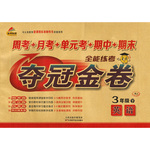题目内容
Japanese people,who never miss a chance to be photographed,were lining up to get their pictures on a postage stamp.Vanity(虚荣)stamps with personal photographs went on sale for the first time in Japan as part of an international postage stamp exhibition.The customer’s photo was taken with a digital camera and then printed on stamp sheets,a process that takes about five minutes.Sold in a sheet of 10 stamps for $8.80,little more than the cost of lunch in Tokyo,each stamp printed a different scene from a traditional painting along with the photo.
The stamps can be used normally to mail a letter,and postal officials hope they will help encourage interest in letter writing in the Internet age.“Certainly e-mail is a useful method of communication,but letters are fun in a different way,”said Hatsumi Shimizu an official in the Post Ministry.“We want to show young people that letters can be fun too.”
While similar stamp sheets appeared in Australia in 1999 and are now sold in some nations and territories,Japan’s fondness for commemorative photos is likely to make them especially popular here.Indeed,officials had prepared 1 000 sheets but they were sold out in less than 30 minutes.Although the stamps are currently only available as a special service during the exhibition,postal officials said they may start selling them on a regular basis in the future.
【小题1】The best title of this passage might be______.
| A.Never Miss a Chance to be Photographed | B.Your Own Face on a Postage Stamp |
| C.First Japanese Postage Stamps with a Photo | D.Letters are as Fun as E-mails |
| A.this service is not very expensive | B.the cost of this service is very high |
| C.food in Tokyo is very dear | D.$8.80 is a very small amount of money |
| A.to make the international postage stamp exhibition more interesting | |
| B.to make more stamps for normal use | C.to draw interest in writing letters |
| D.to satisfy Japan’s fondness of commemorative photos |
| A.Japanese people like to take photos. | B.This kind of stamps must be used to mail letters. |
| C.Japanese people can get this kind of stamps easily after the stamp exhibition. | |
| D.This service is more popular in Japan than in other places. |
【小题1】B【小题1】A【小题1】C【小题1】D
解析

 夺冠金卷全能练考系列答案
夺冠金卷全能练考系列答案A powerful earthquake struck the northeastern coast of Japan at two forty-six p.m. local time on March eleventh.2011. Japan's Meteorological Agency released its first tsunami(海啸) warnings just three minutes later. The country has one of the best earthquake early warning systems in the world.
There are more than four thousand Seismic Intensity Meters in place throughout Japan to measure earthquake activity. These meters provide information within two minutes of an earthquake happening. Information about the strength and the center of the earthquake can be learned within three minutes.
There are also concrete(混凝土) sea walls around much of the Japanese coastline. But these measures proved no match for the powerful earthquake and tsunami.
Costas Synolakis ,a tsunami expert at the University of Southern California in Los Angeles said,"Japan is one of those most well-prepared countries on earth in terms of tsunami warning. They had a warning. I think what went wrong is that they had not expected the size of this event."
He says there are two reasons for this. Japan has not had any event anywhere near as big as this one in the last one hundred fifty years. And scientists had not expected such a large earthquake happening off the coast of Japan.
The nine point zero magnitude earthquake was the fourth most powerful earthquake ever recorded worldwide. It was also the worst earthquake ever to hit Japan. The tsunami waves that followed were reported to have reached as high as thirteen meters in some areas.
Costas Synolakis says Japan's concrete sea walls were not built to handle such high waves.
Experts say early warning systems will continue to be limited by these facts until earthquakes and tsunamis can be predicted
【小题1】Where can this passage probably be adapted from?
| A.A magazine on science | B.A fairy Tale |
| C.A scientific fantasy book | D.A newspaper |
| A.A terrible earthquake hit the northeastern coast of Japan |
| B.It was also the worst earthquake in Japan |
| C.The 9.0 earthquake was the fourth most powerful earthquake ever recorded in Japan |
| D.Japan's concrete sea walls was unable to handle such high waves. |
| A.The country has never experienced any event as big as this one over the past 150 years |
| B.Japan has the best earthquake early warning systems in the world. |
| C.There are not concrete sea walls around all of the Japanese coastline |
| D.The government didn’t announce its first tsunami warnings three minutes earlier. |